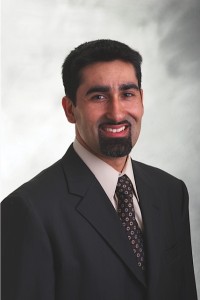
By our Smarty friends at Charlotte Eye Ear Nose & Throat Associates
Ear infections and tubes
If you are a parent, you probably cringe at the term “ear infection”. It probably takes you back to the bouts of screaming and crying and restless nights you experienced when your young one last had an ear infection.
Ear infections, mostly affecting young children, occur when a cold, throat infection or allergy attack causes an infection, inflammation or fluid to become trapped in the middle ear. If an ear infection is present, your child may tug at their ear, be irritable, have restless sleep, decreased appetite, drainage, fever or may cry when you lay them down.
“Ear tubes are usually recommended if your child has recurrent ear infections with three episodes in six months or four episodes in a year. Another sign that your child may need ear tubes is a persistent ear infection with fluid buildup or persistent fluid buildup in the ear after an infection has cleared,” says Dr. Sajeev Puri of Charlotte Eye Ear Nose & Throat Associates, PA (CEENTA).
An ear tube procedure is very quick; lasting about 10 to 15 minutes and done under anesthesia. Not only is the procedure quick but the recovery is as well. Most children feel better than they did before surgery within just a few hours.
Tonsils and Adenoids
What Are Tonsils?
Tonsils are part of the immune system that help fight infections that enter through your mouth or nose before they cause infections in the rest of the body. When bacteria or viruses get into the tonsils and infect them, tonsillitis develops.
What are the symptoms of tonsillitis?
Symptoms include sore throat, visibly red and swollen tonsils, white patches on the tonsils, fever, headache and difficulty swallowing. Viral tonsillitis will usually result in cold-like symptoms, whereas bacterial tonsillitis usually results in sudden and severe fever along with swollen lymph nodes and without cold-like symptoms.
What Are Adenoids?
The adenoids are also part of the immune system that protect kids from getting sick. They sit in the back of the nasal cavity. Adenoids do important work as infection fighters for babies and little kids. Adenoids usually start to shrink after about age five, and by the teenage years they often practically disappear.
What are the symptoms of swollen adenoids?
Because adenoids trap germs that enter the body, adenoid tissue sometimes temporarily swells as it tries to fight off an infection. Swollen or enlarged adenoids are common. When this happens, the tonsils may also get swollen, too. Swollen or infected adenoids can cause difficulty breathing, a stuffy nose, swollen glands in the neck, ear problems or snoring and obstructive sleep problems.
A tonsillectomy and adenoidectomy was once a common procedure to treat infection and inflammation of the tonsils and adenoids. Today, a tonsillectomy and adenoidectomy is usually performed for sleep-disordered breathing but may still be a treatment for frequent tonsillitis. This procedure may be used to treat frequent recurring tonsillitis, chronic tonsillitis or bacterial tonsillitis that does not respond to antibiotic treatment. “Frequent tonsillitis is generally defined as more than seven episodes in one year, more than five episodes a year in each of the preceding two years or more than three episodes a year in each of the preceding three years,” says Dr. Puri.
Dr. Puri states that, “this procedure is usually done as a one-day surgery unless the child is really young. A complete recovery usually takes seven to 14 days.”
Luckily, there are a few things you can do to help prevent all of these for your child. “Teaching children to wash their hands frequently, to not share eating and drinking utensils, and to cough or sneeze into their elbow can help reduce the risk. A childcare setting with fewer children, holding the baby upright after bottle feeding, obtaining the recommended vaccinations, avoiding secondhand smoke exposure and breast feeding may also help,” suggests Dr. Puri.
To schedule an appointment with Dr. Puri or one of our Board Certified Otolaryngologists, please call Charlotte Eye Ear Nose & Throat Associates, P.A. at 704-295-3000 or visit www.goodsenses.com for more information on our services.
Sajeev K. Puri, MD
Adult & Pediatric Otolaryngology
Thyroid Surgery
Allergy Treatment
Functional Surgery of the Nose & Sinus
Blakeney Office



1 comment
Thanks for finally writing about > News from the Smarty Health Corner: Tonsils,
Tubes and Adenoids, OH MY! | Charlotte Smarty Pants
< Loved it!